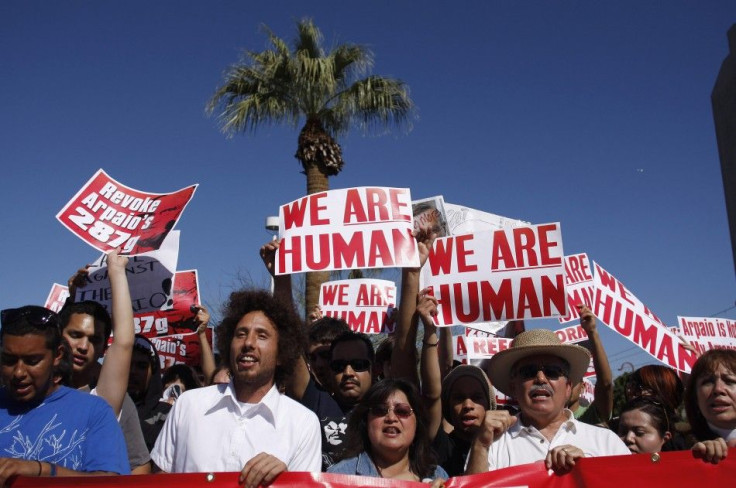Immigration Reform News: What's Inside Rep. Gowdy's Enforcement Bill

Just how difficult it will be to get an immigration reform bill through the House was evident Tuesday during a markup of an interior enforcement amendment held by that chamber’s Judiciary Committee.
Congressional leaders in that committee are discussing a bill by U.S. Rep. Trey Gowdy, R-S.C., that would allow state and local authorities to help enforce federal immigration laws and provide grant funding to meet the task. Congressional Democrats and activists have dismissed the measure, which is taking a tougher approach to enforcement than the bill presented in the Senate.
Gowdy’s bill is called the SAFE Act, or H.R.2278. Here’s what’s inside it:
States And Local Law Authorites Can Enforce Immigration Laws
Gowdy’s law will allow those at the state and local level to enforce these laws to the same extent their federal counterparts do. They can investigate, identify, arrest and detain immigrants or transfer them to federal custody. However, state and local authorities won’t have the power to remove immigrants from the country. The bill requires these individuals be given training (establish a pocket guide) to carry out the task, and the U.S. Secretary of Homeland Security provides grants to procure equipment and facilities necessary to fulfill the task and to increase detention facilities to house those awaiting removal.
Hold Aliens For 14 Days
Authorities at the state and local levels can also hold criminal aliens for up to 14 days after they have served their time in order to facilitating the transfer to federal authorities for deportation.
No Funding For States That Prevent Enforcement
This get-tough approach punishes states and localities that have laws preventing their authorities from helping to carry out immigration enforcements by making them ineligible for grants and other funding to be allocated. Those states that aren’t complying with the law must identify themselves to Congress on March 1 each year.
Stiff Penalties For Illegal Entry
Those who knowingly cross the border and enter the U.S. illegally for the first time could be fined and/or imprisoned for up to six months. An undocumented immigrant who knowingly eludes authorities can be fined and or imprisoned for up to two years. The criminal penalties increase depending on the severity of the crime committed. Those caught attempting to enter the U.S. illegally will be subject to criminal or civil penalties that range from $50 to $250. Those who were deported and illegally reenter the country would be fined and imprisoned for up to two years if caught. The penalties are stiffer for those convicted of misdemeanors or felonies.
Passport, Visa Fraud
Anyone without authority who knowingly issues these documents illegally can be fined and/or imprisoned for up to 15 years. An individual who also purposefully gives false statements to obtain these documents could receive similar punishment. So, too, for those who misuse and forge these documents.
© Copyright IBTimes 2024. All rights reserved.






















